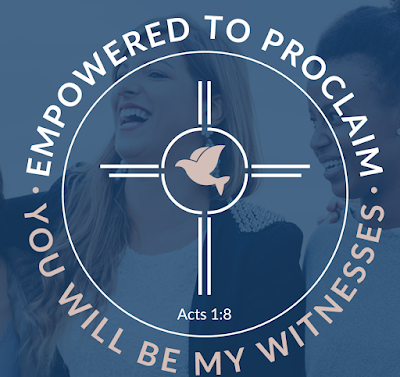WELS Women's "Ministry" Conference, Part 3: "The Power of Partnership"
Our final post in the WELS Women's "Ministry" Conference series will look at the presentation "The Power of Partnerships" with Dr. Kristi Meyer & Rev. Eric Schroeder. Let's read along with the description, shall we?
Many congregations have vibrant and thriving women’s ministries: natural places for female congregation members to volunteer and get involved.
Female congregation members. Where I come from, we call them women.
However, it can be difficult for women to participate in and contribute to other aspects of a church’s ministry, especially if the congregation’s governance model follows a typical male-only board structure.
Ahhh, we've found a way to sex up governance models.
In these situations, partnerships are key—partnerships among all congregation members but especially partnerships between female members and their pastors.
The reason Dr. Meyer is presenting is because she has a M.A. in Theological Studies from MLC. Her thesis paper is entitled "Timeless yet Timely: An Examination of the Biblical Principle of Headship and Its Application." Her thesis opens with the following
In the midst of all things pandemic, an anniversary passed relatively quietly in the summer of 2020. On August 18, 1920, Congress ratified the 19th Amendment and gave women the right to vote. Just over 100 years later, we live in a time and place where women enjoy unprecedented freedom. Congresswoman, stay-at-home mom, CEO, astronaut, doctor, nurse, teacher, lawyer, engineer, and even vice president—never before have women had so many paths available to them. And yet, there is often a sharp contrast between a society that offers seemingly endless possibilities for women and a church body where it can feel as though more doors are closed for women than are open... Passages like 1 Corinthians 14:34 (“Women should remain silent in the churches…”) and 1 Timothy 2:12 (“I do not permit a woman to teach or to assume authority over a man…”) can sound archaic and outdated to our modern ears.1 These certainly aren’t my favorite Scripture passages, and I struggle with my sinful reaction to them. Part of this struggle is internal, coming from my personality, gifts and abilities, and callings and vocations; part of it is external, coming from various voices and entities across the WELS.
There is a lot to unpack here: to start, Kristi assumes that the fruits of feminism are a blessing to society. Kristi notes the contrast between the fruits of society which are ripe and overflowing for women to the perceived fruits of the Church available to her and struggles with the limitations. Jesus is the head of both the Church and civil government (aka the left-hand kingdom: whose left hand?). And she rightly identifies it is not only a struggle for individual women; it is a struggle of "voices and entities" like WLHS, the WELS Lutheran Leadership Conference, our Conference of Presidents, churches adopting new governance models, the list goes on! Kristi is a college professor at Wisconsin Lutheran College, which is a WELS institution where she speaks with αὐθεντεῖν - that is, authoritative teaching. I can understand if, and why, her conscience would bother her. As she rightly notes later in her thesis (footnote 119)
Older WELS papers on this subject, such as Pastor Wayne Mueller’s “Ministry Positions for Women” from 1991, seemingly have no problem listing out roles that women can and cannot hold. As one looks across the WELS today, some of these roles are still only able to be filled by males, but many are held by males and females alike. The one that strikes near and dear to my heart is that of college professor.
Yes, life is better when men speak with Biblical clarity and provide clear distinctions. We used to be able to do this - certainly, as recently as 1991. The Rev. Jonathan Fisk likes to talk about the Patriarch Principle: "All authority exists as given: from above, to below, for the sake of those further below." Men of faith - patriarchs - who can discern the Bible and provide concrete guidance to those below them provide the stability necessary for those below them to flourish. When we have "voices and entities" that are willing to be blown this way and that by societal pressure - which ask "did God really say?" when we used to speak with biblical clarity - leave those in their care on unstable ground which does not allow to flourish and indeed can lead to troubled consciences.
I don't anticipate much clarity from this presentation or the one previously discussed.
Enough for now. There is a lot of meat in Kristi's dissertation - my jimmies have been sufficiently rustled - so expect a future blog post ...

Comments
Post a Comment